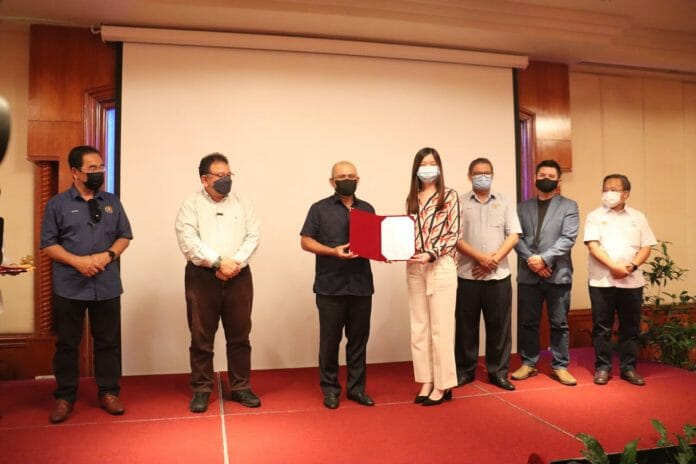Minister of Agriculture and Food Industry, Datuk Dr. Series Ronald Kiandee in his engagement session with fishermen, deep sea entrepreneurs, deep sea fisheries industry players, frozen fish manufacturers and processors indicated that the potential to grow the country's tune is immense. "This tuna fishing industry has great potential as a source of wealth for the country and can be developed in Sabah and Labuan, this is also in line with comprehensive transformation and development of the fisheries sector under the National Agro -Food 2.0 Policy," However, for the industry to expand, both public and private secctor need to collaborate, existing investors and industry players must open bigger factories and operated more tuna vessels and aim to make Labuan a Tuna Hub. The Minister reiterated that the ecosystem for the industry is not just cathing the fishes but the improvement of the overall value chain such as ports, transportation, storage, processing and including introducing value -added products such as tuna steak, canned tuna, satay, serunding, tuna skin crackers and so on. As members of the Indian Ocean Tuna Commission, Dr Ronald advices fishing companies send more tuna vessels into the Indian Ocean and encourage more boats to offload in Malaysian fishing ports. In fact the Goverment is also intending to join another organisation to give fisherman more leverage in tuna fishing. The Western and Central Pacific Fisheries Commission which will give exposure into the Pacific Ocean next. Currently Malaysia has a total of 20 tuna vessels, namely 19 fishing vessels tuna fish and a tuna carrier, the target is to have 70 vessels in operation for the Indian Ocean by 2030, if this is achieve the tuna landing quota for the country can reach 30 thousand metric tons, which can place Malaysia in a interesting position in the tuna bussiness These initiaitives by the Ministry will offer positive prospects for the country to be both self sustainable in terms of accessing food source from the ocean and reducing the dependency of foreign imports. However, this can only be achieved if both private and public sector combine their energy together and work towards common goals.









